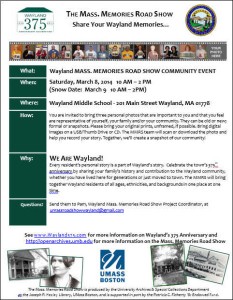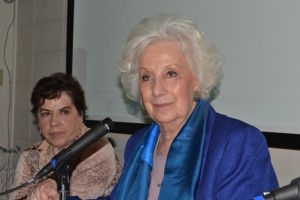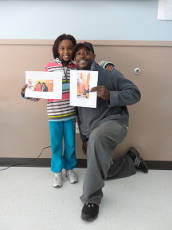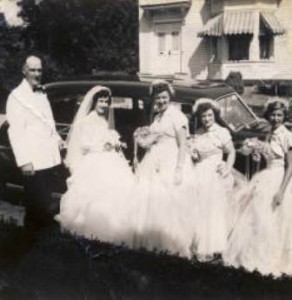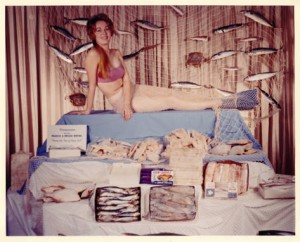
‘My wife Susan Soults modeling as a mermaid for an Atlantic Coast Fisheries promotion for frozen fish to be sold in the Midwest, 1964.’ Contributor: Tony Jackett.
The images and stories gathered at the Provincetown Mass. Memories Road Show on September 28, 2013 are now available online. Held at the Veterans Memorial Community Building, the event was organized by the Provincetown Public Library, Council on Aging, Town of Provincetown, Provincetown Art Commission, and Provincetown Monument and Museum. Two dozen local volunteers worked together with a team of UMass Boston staff members and “Roadies” from past Mass. Memories Road Shows to welcome individuals with connections to the town.
About 120 individuals contributed over 300 photographs documenting personal memories of friends and relatives in Provincetown and beyond. Overall, the collection reflects both the rich cultural heritage and artistic character of the town and its residents. Several contributors brought images and stories about work or recreation at sea, while others shared photographs of such local businesses as the Old Colony Tap, Phantasy Photo, and the Now Voyager and Cape & Dagger bookstores. Images of weddings in the “hippie” era of the 1960s and 1970s and same-sex union ceremonies in more recent years are among the personal occasions preserved. The collection also includes photographs of town celebrations such as the prom at Provincetown High School, and the 4th of July and Carnival parades.
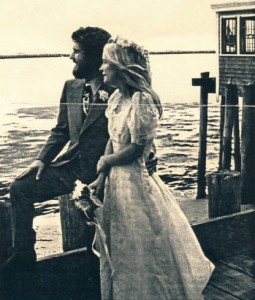
‘Our wedding day, gorgeous warm November afternoon. On the deck overlooking Provincetown Harbor, 1971. Contributors: Deborah and Dennis Minsky.
Browse the Provincetown Mass. Memories Road Show collection.
The Mass. Memories Road Show is a statewide digital history project that documents people, places and events in Massachusetts history through family photographs and stories. In partnership with teams of local volunteers, we organize public events to scan family and community photographs and videotape “the stories behind the photos.” The images and videos are indexed and incorporated into an online educational database. Since its launch, the project has gathered more than 8,000 photographs and stories from across the state. It is supported in part by the Patricia C. Flaherty ’81 Endowed Fund at UMass Boston.
University Archives & Special Collections in the Joseph P. Healey Library at UMass Boston was established in 1981 as a repository to collect archival material in subject areas of interest to the university, as well as the records of the university itself. The mission and history of UMass Boston guide the collection policies of University Archives & Special Collections, with the university’s urban mission and strong support of community service reflected in the records of and related to urban planning, social welfare, social action, alternative movements, community organizations, war and social consequence, and local history related to neighboring communities. To learn more, visit blogs.umb.edu/archives.
